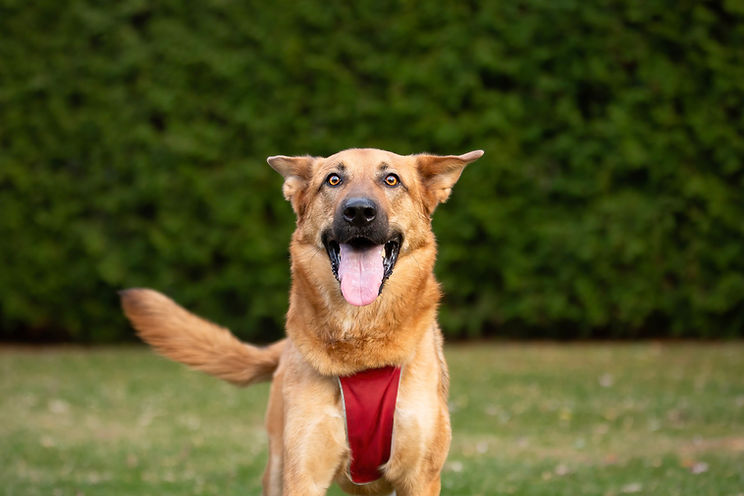What pet owners often misunderstand about veterinary behaviour (and how to avoid mistakes)
Wiki Article
Comprehending the Role of a Vet Behaviourist in Family Pet Training and Health
The function of a vet behaviourist is crucial in addressing the intricate relationship between animals and their owners. They combine vet medicine with insights from animal behavior scientific research to take on concerns like aggressiveness and stress and anxiety. Unlike traditional trainers, their technique concentrates on the underlying causes of these habits. This nuanced point of view increases questions regarding the effectiveness of standard training techniques and how a deeper understanding can change pet wellness. What approaches do they use to achieve these outcomes?What Is a Veterinary Behaviourist?
A veterinary behaviourist is a specialized expert that concentrates on understanding and attending to the behavior concerns of pets, particularly pets. Their experience incorporates veterinary medication and animal behavior science, enabling them to identify and treat a large range of behavior troubles - canine behaviourist near me. These specialists often hold sophisticated degrees, such as a Master's or PhD in pet habits, and are certified by appropriate organizations, ensuring they possess a deep understanding of pet psychologyVeterinary behaviourists assess pets via thorough observation and analysis, thinking about elements such as genetics, atmosphere, and training background. They develop customized therapy plans, which may include desensitization strategies, positive reinforcement approaches, and environmental adjustments. Cooperation with pet proprietors is essential, as they offer guidance and support throughout the training procedure. Ultimately, the goal of a vet behaviourist is to improve the health of the animal while cultivating an unified connection between pets and their proprietors.
The Significance of Understanding Animal Behavior
Recognizing animal actions is important for both pet dog proprietors and specialists in the field of pet care, as it lays the foundation for effective interaction and training. Acknowledging just how pets view their setting and react to stimulations makes it possible for caregivers to develop a much more harmonious living circumstance. Insight right into behavior signs, such as body language and vocalizations, cultivates more powerful bonds between family pets and their proprietors. By valuing the all-natural impulses and needs of different species, individuals can tailor their training approaches to suit these variables, advertising much better knowing and participation. Additionally, a strong grasp of behavioral science aids in determining stress factors and potential triggers, permitting proactive treatments. On the whole, recognizing animal actions not just improves the wellness of pets however additionally enhances the experiences of those who look after them, inevitably leading to much healthier, happier relationships.Common Behavioral Issues Resolved by Veterinary Behaviourists
Veterinary behaviourists regularly attend to common behavioral concerns in pet dogs, including hostility and fear feedbacks. They likewise concentrate on anxiousness and anxiety administration, which can considerably impact a pet's wellness. Comprehending these concerns is necessary for creating effective training and treatment techniques.Hostility and Fear Actions
While many pet owners might check out aggressiveness and fear actions as straightforward behavioral issues, these complicated responses commonly stem from underlying anxiousness or past trauma. Veterinary behaviourists play an important function in determining the origin causes of these behaviors, which can materialize in various types, consisting of growling, attacking, or excessive fear of certain scenarios. Recognizing these triggers is crucial for establishing efficient training approaches customized per pet dog's unique circumstances. Behaviourists use approaches such as desensitization and counter-conditioning to aid pets handle their fears and aggressiveness. In addition, they inform pet owners concerning appropriate management methods, highlighting the relevance of perseverance and uniformity. Resolving aggressiveness and anxiety feedbacks not only enhances the pet's lifestyle however likewise reinforces the bond in between pet and proprietor.Anxiousness and Tension Administration
Anxiety and tension are prevalent problems that lots of pets face, frequently resulting from adjustments in their setting, absence of socialization, or previous adverse experiences. Vet behaviourists play a vital duty in recognizing the underlying root causes of these issues. They use numerous strategies, including behavioral alteration, desensitization, and counter-conditioning, to aid pet dogs handle anxiety. In addition, they may recommend environmental adjustments, such as producing secure spaces or supplying enrichment tasks that promote relaxation. Partnership with family pet owners is crucial, as behaviourists lead them in comprehending their family pet's signals and carrying out efficient coping approaches. By attending to stress and anxiety and anxiety, vet behaviourists add considerably to improving the general wellness and lifestyle for family pets and their family members.Just How Veterinary Behaviourists Vary From Standard Fitness Instructors
Vet behaviourists vary from traditional trainers mostly in their educational backgrounds and training. While conventional trainers usually concentrate on obedience and fundamental commands, veterinary behaviourists stress understanding and resolving underlying behavior concerns, incorporating medical factors to consider into their approach. This unique emphasis allows them to give an extra detailed therapy for animals with intricate behavior obstacles.Education and Training Distinctions
Understanding the difference in between veterinary behaviourists and traditional trainers is essential for pet proprietors seeking reliable training services. Veterinary behaviourists possess postgraduate degrees in veterinary medication, frequently complied with by specialized training in animal practices. This education and learning equips them to address complicated behavioural issues that may come from clinical problems or psychological factors. In contrast, standard fitness instructors usually have certifications from training programs that focus on obedience and standard commands without delving into the underlying emotional or medical elements. While both experts intend to boost animal behaviour, veterinary behaviourists can detect and deal with behavioral issues holistically, incorporating clinical understanding into training approaches. This crucial difference highlights the significance of selecting the appropriate specialist based upon the pet's particular needs.Concentrate On Behavioral Issues
Resolving behavioural problems calls for a nuanced technique that distinguishes veterinary behaviourists from conventional trainers. While standard fitness instructors frequently concentrate on obedience and basic commands, vet behaviourists check out deeper into the underlying sources of bothersome behaviors. They employ a considerable understanding of pet psychology and actions modification methods, which are rooted in clinical research study. This knowledge allows them to identify issues stemming from stress and anxiety, fear, or aggressiveness, rather than merely attending to surface-level signs and symptoms. moved here Additionally, veterinary behaviourists assess the animal's total health, thinking about environmental variables and the pet's history. By integrating clinical understanding with behavioural approaches, they provide customized services that advertise lasting behavioral change, ensuring both the pet dog's and proprietor's lifestyle are markedly improved.Clinical Considerations Included
While traditional instructors might neglect underlying medical problems, veterinary behaviourists focus on a complete analysis of a pet dog's health as a fundamental action in resolving behavioural issues. This technique allows them to determine potential medical problems that may add to undesirable behaviors, such as anxiousness, discomfort, or neurological problems. By incorporating medical examinations into their practice, veterinary behaviourists can work together with vets to ensure a holistic understanding of the family pet's wellness. Additionally, they can suggest suitable treatments or changes to training strategies based on clinical findings. This substantial viewpoint identifies veterinary behaviourists from traditional instructors, as they deal with both behavioural and health-related aspects, inevitably causing much more reliable and lasting end results for animals and their owners.
The Process of Dealing With a Veterinary Behaviourist
Teaming up with a vet behaviourist involves a systematic technique to resolving a family pet's behavior problems. The procedure starts with a considerable assessment, where the behaviourist gathers in-depth info concerning the family pet's background, environment, and particular behaviors that are troublesome. This commonly consists of surveys, interviews with the pet proprietor, and occasionally observations of the family pet in its atmosphere.Complying with the analysis, the veterinary behaviourist formulates a tailored intervention strategy that might consist of behavioral alteration methods, training approaches, and, if essential, recommendations for clinical evaluations. canine behaviourist near me. The strategy is developed to be sensible and attainable, making sure that it fits perfectly right into the pet dog owner's lifestyle
Succeeding follow-up sessions are vital to monitor progress, change techniques, and offer support. This collective effort not just intends to change undesirable actions yet additionally to enhance the total well-being of the pet, making certain an unified relationship in between the pet dog and its proprietor.
Enhancing Your Pet dog's High quality of Life With Behavioral Assistance
Enhancing a pet dog's lifestyle with behavioral assistance is essential for cultivating a healthy and balanced and satisfying connection between family pets and their proprietors (canine behaviourist near me). Veterinary behaviourists play a crucial duty in identifying and dealing with behavioral issues that might hinder a pet go to my blog dog's health. Via customized methods, they aid minimize anxiety, concern, and aggressiveness, eventually promoting a much more well balanced and pleased animalBehavior support includes numerous strategies, visit their website consisting of positive support, ecological enrichment, and socializing. By implementing these techniques, owners can produce a caring environment that encourages favorable actions. This not only improves the animal's emotional health and wellness however also strengthens the bond in between family pet and proprietor.
In addition, regular appointments with a veterinary behaviourist assurance that any type of arising behavior problems are promptly resolved, avoiding rise. On the whole, investing in behavioral assistance is a positive method that greatly improves a pet's life, resulting in enhanced physical and mental wellness outcomes.
Often Asked Concerns
What Credentials Do Vet Behaviourists Possess?
Veterinary behaviourists normally hold a veterinary level, followed by specialized training in animal behavior. Many additionally have accreditations from recognized organizations, showing their experience in addressing pet actions concerns and advertising general pet wellness.Can Veterinary Behaviourists Suggest Medication for Animals?


Vet behaviourists, having vet degrees and specialized training, can without a doubt prescribe drug for animals. This capacity enables them to attend to underlying behavioral concerns successfully, commonly integrating pharmacological treatment with behavioral modification methods for best results.
The Length Of Time Does Behavior Modification Generally Take?
Behavioral treatment duration differs considerably, commonly varying from a couple of weeks to a number of months. Aspects influencing this timeline include the pet dog's specific problems, consistency of training, and the owner's interaction at the same time.Are Remote Consultations Available With Vet Behaviourists?

Just how much Does a Veterinary Behaviourist Appointment Cost?
The price of a veterinary behaviourist assessment normally varies from $100 to $300, depending upon variables such as area, experience, and session size. Extra fees may make an application for follow-up appointments or specialized solutions.Report this wiki page